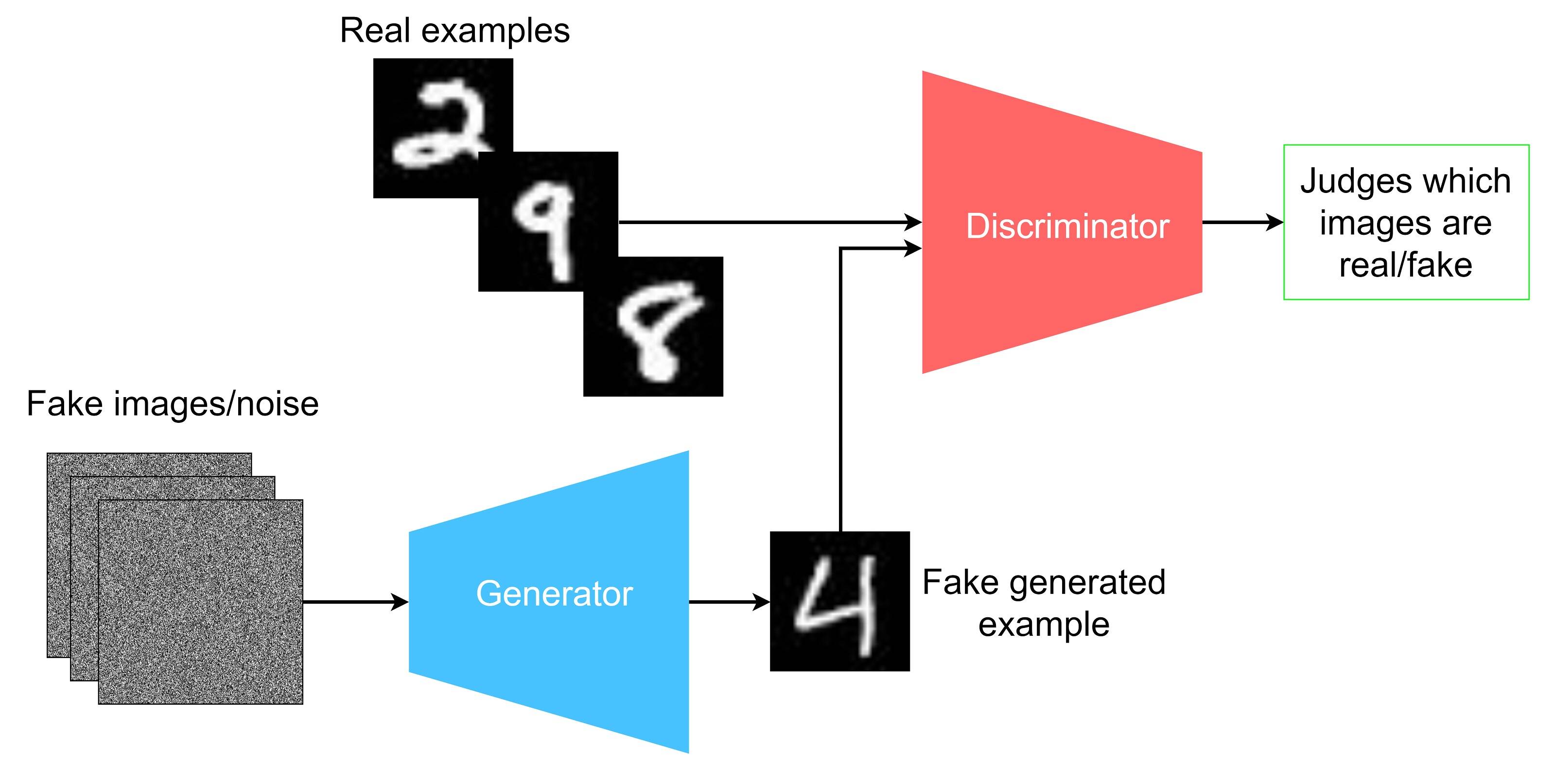Neural Network
In Deep_learning, we use an Artificial Neural Network (ANN) as architecture to solve Machine Learning problems. An ANN imitates a brain by connecting perceptrons (i.e. artificial neurons) together.
Generative Adversarial Network

In a Generative Adversarial Network (GAN), 2 neural networks compete with each other.
The generator will attempt to create a synthetic output (e.g. an image) from random noise. The discriminator compare the result with a real dataset (usually unsupervised) and try to determine the fake result.
Backpropagation process apply on both models so they can improve: the generator create better samples, the discriminator become better at finding them.
Variants
Here some prominent GAN variants:
- DCGAN (Deep Convolutional GAN): Uses convolutional layers for better image generation.
- WGAN (Wasserstein GAN): Improves training stability with a different loss function.
- CycleGAN: Translates images between different domains (e.g., horse to zebra).
- StyleGAN: Known for generating high-quality, photorealistic faces.
- BigGAN: Scales up GANs for generating high-resolution images.